 Thank you to everyone who submitted a question for this month's author interview with author and Napoleonic expert, J. David Markham. Even though the interview was originally only to have the top five questions, Mr. Markham graciously agreed to answer a few more....all while he is busy working on his next book AND filming for the History Channel!
Thank you to everyone who submitted a question for this month's author interview with author and Napoleonic expert, J. David Markham. Even though the interview was originally only to have the top five questions, Mr. Markham graciously agreed to answer a few more....all while he is busy working on his next book AND filming for the History Channel! And the book winner is announced at the bottom of the interview....
- From Amanda
1. What inspired you to become such a Napoleon enthusiast?
Amanda, like many people I can credit my parents, in this case my father, with encouraging my interests. He would tell me stories of various famous people in history, including Napoleon. Napoleon once said, ‘What a novel my life has been,’ and he really had it right. A rise from obscurity to greatness, a fall and a rise again. Love, sex, military glory, lots of battles, neat uniforms, glorious cavalry charges: what’s not to like, if you are a young boy? Dad had been to Paris and showed me picture postcards of places like the Arch of Triumph, Napoleon’s tomb, etc. I was hooked!
-From Amanda (this was going to be my question too!)
2. And what is your favorite piece in your Napoleonic collection and why?
Well, Amanda, you have really asked a tough one here. I have hundreds of items in my collection, many of them beautiful and often pretty valuable, either in terms of price or in terms of historical rarity. Sometimes I ask myself the terrible question of which piece I’d grab if there was a sudden fire and I had to get out quick. Its a depressing thought!
Still, your question deserves an answer and, as it happens, I have a pretty good one.
Some years ago my wife, Barbara, and I were given a private tour of the palace of Versailles, including some major areas that are not open to the public. Our guide was one of the curators, so it was a great honor. I showed him some photos of my collection (which was much smaller then), and he picked out what he considered to be the best pieces in the collection. As it happens, they were my favorite as well.

The pieces he picked were a pair of ivory miniatures (shown above), one of Napoleon, the other of Josephine. They are in 83x96 millimeter frames (about 3.25 inches by 3.75 inches), so they are fairly small. They are signed by the French miniaturist of the late 18th and early 19th century François Noël. The pieces are almost certainly from the First Empire period (1804–1815), and might even have been created for the coronation in December of 2004.
They are exquisitely carved in great detail. Josephine is especially wonderful, as the detail in her gown, jewelry and diadem are really quite amazing. And each person has wonderful, very human, expressions. If I could only keep one item (or set, in this case), I’m pretty sure this would be it.
 -From Maija
-From Maija
3. Where do you even begin to research the history to write a book?!?!
Maija, the answer to that question will be different, depending on who you ask. In my case, I am fortunate enough to have a library of about 1200 different volumes on Napoleonic history, including English translations of virtually all of the memoires of the period and many documents as well. I have written some of my books just using these sources.
There are other sources as well, including some that I can get from my computer. Google Books has some rare books available for free in PDF form, and some websites have some outstanding information as well. But you have to be careful when you use the Internet, as some websites have very poor information. Of course, you have to be careful about some books as well!
Finally, for some of my research I have been to the British Library and the French Library and the French National Archives.
 -From Carmi.
-From Carmi.
4. Where is your favorite place to see Napoleon history?
A city, museum,or special site?
Carmi, I’ve had the great pleasure and good fortune to follow Napoleonic history from England to Israel, from France to Russia, and just about everywhere in between. But I must say that the place to start is the center of the Napoleonic world: Paris! There you have his tomb, the Arch of Triumph, his rooms at Versailles (just in the outskirts), and several museums full of important Napoleonic artifacts. Then you can go a little further out of town to Fontainebleau and see where he lived some of the time and where he abdicated his throne in 1814 before being sent in exile to Elba.
Another exciting place to see Napoleonic history is the city where he was born, Ajaccio, Corsica. Corsica is a French island just of the Mediterranean coast. You can see the house where he was born and many other places of his childhood.
Of course, there are some very interesting battlefields, including Marengo (Italy), Waterloo (Belgium), Austerlitz (Czech Republic), Acre (Israel), Wagram (Austria) and Borodino (Russia).
But if I had to pick just one, it would definitely be Paris!
-From Maria Reed
5. Did Napoleon really touch the bobos of the plague victims at Jaffa? Wouldn't he had feared certain death? Or was the image of him doing that pure propaganda on the part of David?

They are exquisitely carved in great detail. Josephine is especially wonderful, as the detail in her gown, jewelry and diadem are really quite amazing. And each person has wonderful, very human, expressions. If I could only keep one item (or set, in this case), I’m pretty sure this would be it.
 -From Maija
-From Maija3. Where do you even begin to research the history to write a book?!?!
Maija, the answer to that question will be different, depending on who you ask. In my case, I am fortunate enough to have a library of about 1200 different volumes on Napoleonic history, including English translations of virtually all of the memoires of the period and many documents as well. I have written some of my books just using these sources.
There are other sources as well, including some that I can get from my computer. Google Books has some rare books available for free in PDF form, and some websites have some outstanding information as well. But you have to be careful when you use the Internet, as some websites have very poor information. Of course, you have to be careful about some books as well!
Finally, for some of my research I have been to the British Library and the French Library and the French National Archives.
 -From Carmi.
-From Carmi. 4. Where is your favorite place to see Napoleon history?
A city, museum,or special site?
Carmi, I’ve had the great pleasure and good fortune to follow Napoleonic history from England to Israel, from France to Russia, and just about everywhere in between. But I must say that the place to start is the center of the Napoleonic world: Paris! There you have his tomb, the Arch of Triumph, his rooms at Versailles (just in the outskirts), and several museums full of important Napoleonic artifacts. Then you can go a little further out of town to Fontainebleau and see where he lived some of the time and where he abdicated his throne in 1814 before being sent in exile to Elba.
Another exciting place to see Napoleonic history is the city where he was born, Ajaccio, Corsica. Corsica is a French island just of the Mediterranean coast. You can see the house where he was born and many other places of his childhood.
Of course, there are some very interesting battlefields, including Marengo (Italy), Waterloo (Belgium), Austerlitz (Czech Republic), Acre (Israel), Wagram (Austria) and Borodino (Russia).
But if I had to pick just one, it would definitely be Paris!
-From Maria Reed
5. Did Napoleon really touch the bobos of the plague victims at Jaffa? Wouldn't he had feared certain death? Or was the image of him doing that pure propaganda on the part of David?

Maria, you have touched (no pun intended) on an important consideration when researching history: who do you believe? In this case, you should believe the sources that say that Napoleon did, in fact, touch the plague victims. There are accounts of him mingling with the soldiers and then helping to move a corpse, which was, in fact, a dangerous thing to do. But Napoleon always had a very special relationship with his soldiers. For the plague victims, he arranged for extra good food and some military music to be available as well.
 The British have always promoted the idea that this was just French propaganda, but it is, in fact, British propaganda that is at work here. They always have tried to downplay any really positive aspects of Napoleon’s career.
The British have always promoted the idea that this was just French propaganda, but it is, in fact, British propaganda that is at work here. They always have tried to downplay any really positive aspects of Napoleon’s career.
To be sure, the painting by Antoine-Jean Gros (1771–1835) (not Jacques-Louis David as you suggest, though Gros studied under David for a time) may not be exactly as it happened. It certainly makes the scene look very dramatic. But the building shown in the painting still exists and I have stood in the exact spot where Napoleon stood in the painting.
 The British have always promoted the idea that this was just French propaganda, but it is, in fact, British propaganda that is at work here. They always have tried to downplay any really positive aspects of Napoleon’s career.
The British have always promoted the idea that this was just French propaganda, but it is, in fact, British propaganda that is at work here. They always have tried to downplay any really positive aspects of Napoleon’s career.To be sure, the painting by Antoine-Jean Gros (1771–1835) (not Jacques-Louis David as you suggest, though Gros studied under David for a time) may not be exactly as it happened. It certainly makes the scene look very dramatic. But the building shown in the painting still exists and I have stood in the exact spot where Napoleon stood in the painting.
-From Maria Reed
6. How many snuff boxes do you own David?
Maria,That is not quite as easy a question as you might think. I have many boxes, most of which are probably snuffboxes. But a few might be actually for something else, such as small jewelry, makeup, or even perfume. But the total number (at last count) is about 160 boxes, and I believe I have perhaps the largest private collection of Napoleonic snuffboxes in the world.
-From Maria Reed
7. Was Napoleon really successful in banning La Marseillaise? How often was his anthem 'Veillons au Salut du l'Empire' sung? Was it an official part of all most ceremonies?
Bonjour, Marie. Your question is a good one, and the answer is a little complex. The Marseillaise was composed as a marching song for soldiers marching from–-you guessed it—Marseillaise, a coastal city in the south of France. The soldiers had a long march to Paris and this made the constant hours of marching go by a little easier. It was called the War Song of the Army of the Rhine, but eventually became known as La Marseillaise.
This was in 1792, the early years of the French Revolution, and if you listen to the words, it is very Revolutionary and, to some, a bit revolting. It is also quite bloodthirsty, at least to some people. You’ve got your basic cutting of the throats of sons and consorts, impure blood watering our furrows, ripping open mother’s wombs: you get the picture. It is a call to action in defense of the Fatherland, and it became the symbol of the French Revolution.
That’s all well and good, but by the time Napoleon came to power, he wanted less Revolution and more stability. Revolution is fine against some other leaders, but not against the current leader, namely Napoleon. So when Napoleon became Emperor, he replaced the Revolution with an Empire, and La Marseillaise with Veillons au Salute du l‘Empire. This song sounds more like an anthem than a rousing call to Revolution. It was used at most public official ceremonies, especially those featuring Napoleon, but there were other songs as well that were used from time to time, certainly during the Consulate (1800-1804).
However, while Napoleon discouraged the singing of La Marseillaise and apparently issued orders banning its official use, it was used from time to time when it seemed necessary to rouse the people to action. It was also used by some military leaders with deep Revolutionary roots. Most notably, Napoleon himself used it when he returned for the 100 Days, wishing to remind the French that it had been him who had saved the Revolution and fought against those who would restore the Bourbon monarchy. When that same monarchy came to power in the person of Louis XVIII, he banned it for the same reasons. The July Revolution of 1830 brought it back, but Napoleon III banned it again, as did Vichy France in 1940. After World War II, however, it returned as the French National Anthem.
Bonjour, Marie. Your question is a good one, and the answer is a little complex. The Marseillaise was composed as a marching song for soldiers marching from–-you guessed it—Marseillaise, a coastal city in the south of France. The soldiers had a long march to Paris and this made the constant hours of marching go by a little easier. It was called the War Song of the Army of the Rhine, but eventually became known as La Marseillaise.
This was in 1792, the early years of the French Revolution, and if you listen to the words, it is very Revolutionary and, to some, a bit revolting. It is also quite bloodthirsty, at least to some people. You’ve got your basic cutting of the throats of sons and consorts, impure blood watering our furrows, ripping open mother’s wombs: you get the picture. It is a call to action in defense of the Fatherland, and it became the symbol of the French Revolution.
That’s all well and good, but by the time Napoleon came to power, he wanted less Revolution and more stability. Revolution is fine against some other leaders, but not against the current leader, namely Napoleon. So when Napoleon became Emperor, he replaced the Revolution with an Empire, and La Marseillaise with Veillons au Salute du l‘Empire. This song sounds more like an anthem than a rousing call to Revolution. It was used at most public official ceremonies, especially those featuring Napoleon, but there were other songs as well that were used from time to time, certainly during the Consulate (1800-1804).
However, while Napoleon discouraged the singing of La Marseillaise and apparently issued orders banning its official use, it was used from time to time when it seemed necessary to rouse the people to action. It was also used by some military leaders with deep Revolutionary roots. Most notably, Napoleon himself used it when he returned for the 100 Days, wishing to remind the French that it had been him who had saved the Revolution and fought against those who would restore the Bourbon monarchy. When that same monarchy came to power in the person of Louis XVIII, he banned it for the same reasons. The July Revolution of 1830 brought it back, but Napoleon III banned it again, as did Vichy France in 1940. After World War II, however, it returned as the French National Anthem.
From Amanda
8. What is your favorite Napoleonic movies? (My dad was a huge fan of Waterloo.)
Well, Amanda, I must say that your father has good taste, as I usually say that Waterloo is my favorite Napoleonic movie. It really gives a good impression of what it was like during the 100 days, and the battle scenes are quite realistic. I love Rod Steiger as Napoleon, even if he is a bit over the top! The recent Monsieur N is beautifully done, but pretty much entirely fiction. The Abel Gance silent film, Napoleon is a real classic, but if I had to stick with just one, I’d stick with Waterloo.
Thank you Mr. Markham for taking the time to answer these questions.
And the winner is....Maija for her question - "Where do you even begin to research the history to write a book?!?!" Just email me your address at: info@CarlynBeccia.com so we can mail out your prize. I do hope your library is not as big as Mr. Markham's library...there might not be any more room for books.

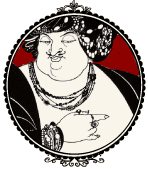

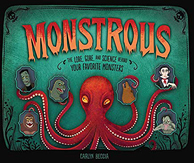

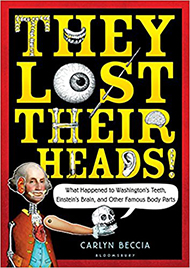


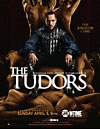

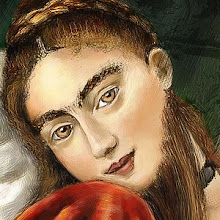
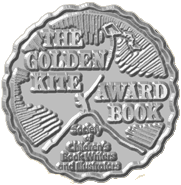
4 comments:
Carmi, this was so interesting! I can't wait to meet Markham in person this June. He's coming to Montreal for the International Napoleonic Congress, where I hope to find out more interesting stuff. I'll keep you posted. Thanks!
This was a fantastic interview...I had to read it twice because I rushed through the first reading!!
Thank you so much!
I am delighted that you ladies liked the interview and certainly looking forward to meeting Ms. Lucy at the congress in Montreal. Please do send in your registration form!
David
Hej David!
I don't have a blog yet, but I was a big fan of Carmi's Napoleon Obsession. You are so lucky! I have been obsessed with der Keiser for a meagre two years but oh well!
Thank you Raucous Royals for doing the David interview on my very favourite number one thing in this world!
Post a Comment